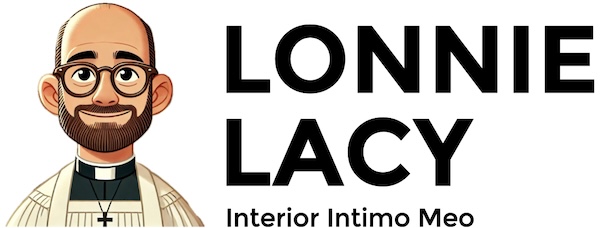St. John’s Episcopal Church
Tallahassee, FL
Deuteronomy 26:1-11 Luke 4:1-13
Well, here we are, the first Sunday in Lent.
The ashes are still fresh on our foreheads,
the Great Litany has been sung,
and now we’re all bracing for forty days
without sugar, or caffeine, or social media . . .
basically, all the things that make us halfway tolerable.
And I’ll be honest,
I’ve been super surprised and proud
of how energized you all seem to be
about really living into the season of Lent this year.
Some of you are coming into it
like spiritual Olympic athletes . . .
certain that you’re going to cross that finish line
no matter what!
Others of you are just kind of tiptoeing in,
getting a feel for it as you go.
But no matter how you do it,
the main thing I want you to keep remembering
is this:
The holy season of Lent
is not about what we do for God.
It’s about what God has done—and is doing—for us.
* * *
That, my friends, is at the very heart of today’s readings.
If we miss that, we miss everything,
and it all begins with this obscure line in Deuteronomy:
“A wandering Aramean was my father.”
That line is so easy to miss,
and it sounds more like a trivia fact
than some big important truth.
But here’s the context.
You see, way back,
when the people of Israel
were finally getting ready
to finally enter the Promised Land,
God commanded them
to bring the first fruits of the harvest to the altar
and confess these words.
It was a liturgy of remembrance, a way of saying:
“We did not get here by our own power.
We are not self-made people.
We were nobodies
from nowhere
with nothing—
and if it weren’t for God,
we’d still be there.”
Their patriarch Jacob—
the wandering Aramean in question—
was a scoundrel and a schemer
who made a mess of his life more than once.
If his life were a TV show,
Jacob’s theme song would be,
“This is a story all about how
my life got flipped, turned upside down.”
For you see,
Jacob was not the hero of this story.
God was.
And that’s the point.
So when God’s people crossed into the Promised Land,
they were commanded to bring the first fruits of the harvest
and to confess that truth:
“A wandering Aramean was my father.”
In other words:
“We did not do this.
God did.”
That, my friends, is the heart of Lent,
and honestly, it’s the heart of the Christian faith:
Not what we can do for God,
but what God has already done for us.
* * *
Which brings us to Jesus in the wilderness.
Fresh off his baptism,
full of the Holy Spirit,
Jesus heads into the desert.
He is tired, and hungry, and alone,
and right then—right at his weakest moment—
who shows up but the devil himself.
And honestly,
this is usually where we get the story all wrong.
A lot of times we like treat this story
like a spiritual how-to manual.
“Jesus defeated the devil
in three easy steps,
and you can, too!”
We reduce it to a pep talk,
but that’s not the point.
This is not a story about what we can do.
This is a story about what Jesus has already done.
Because let’s face it:
when it comes to sin and temptation,
we’re actually not spiritual Olympic athletes.
We are dust—
and in the face of temptation,
we are easy prey.
But not Jesus.
Jesus is the One who goes into the wilderness—
not to show us how to conquer sin,
but to conquer it for us.
When the devil says,
“Turn these stones to bread,”
Jesus says,
“No.”
When the devil says,
“Worship me, and you can rule the world,”
Jesus says,
“Absolutely not.”
When the devil says,
“Prove God loves you,”
Jesus says,
“Boy, get out my face,
‘cause I already know he does.”
This story is not about our resolve.
It is about God’s faithfulness.
It is about the One who goes into the wilderness for us,
who overcomes every temptation we cannot,
and who comes back victorious—
not to shame us,
but to save us.
That is why we pray the Great Litany today,
that long and ancient list of prayers and intercessions.
Not to prove our holiness,
but to name our needs . . .
to say out loud that every good and perfect gift
comes from a God who has decided
to adopt us,
to love us,
and to save us,
anyway.
* * *
So this Lent, keep your fast.
Pray, repent, give, let go.
Do all the things.
But don’t do it to try to earn God’s love.
Do it because you already have God’s love.
Do it to remember who you are:
a wandering Aramean, a nobody from nowhere,
saved by grace alone.
And do it to remember who God is:
the One who brings nobodies home,
the One who has already conquered sin and death,
the One who provides, not because we deserve it,
but because that just is who he is.
This is who your God is.
This is who you are.
You’re not a self-made somebody—
you’re a beloved nobody.
And with a God like ours,
that means you
are more than enough.
Amen.
